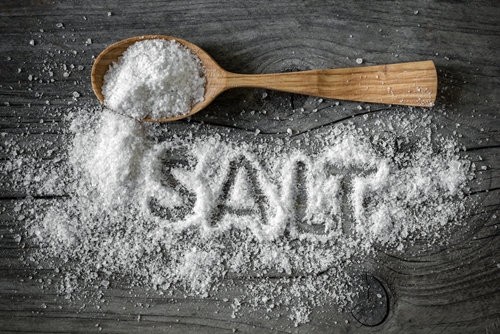
Salt Is Not Your Friend
We’re all guilty of it, an extra shake or two on our fish and chips, an additional sprinkle over a dull box of popcorn. It’s fair to say that for many people, salt is taken for granted. It sits on the table, looking ever so innocent next to the pepper cellar, waiting for you to dash it over your next meal.
Unfortunately, like all good things, it appears like we may have to bring our penchant for salt to an end. While none of us obviously go around drinking the stuff (hopefully), the verdict is in on salt, and it isn’t looking too good.
So next time you’re strolling down the isles of the supermarket, take a second to reconsider what you’re putting into your reusable shopping bag.
High salt, high risk
In conjunction with World Salt Awareness Week, new information has come to light surrounding salt and its effects on our health. This year the movement is targeting high salt intake in children.
“Like adults, children consume more salt than the maximum recommendation,” says the World Action On Salt and Health (WASH). The organisation is also urging parents and guardians to take steps to lower children’s salt intake in an effort to lessen the chances of cardiovascular disease.
“Further to this, a high intake in children can influence blood pressure and may predispose a child to the development of a number of diseases including: high blood pressure, osteoporosis, respiratory illnesses such as asthma, stomach cancer and obesity.”
New salt effects
Furthermore, our salty friend sodium chloride has recently been linked to aggravating the symptoms of multiple sclerosis and rheumatoid arthritis, both autoimmune diseases. This is according to new research from scientists at Harvard and Yale Universities, as reported by the Guardian.
Harvard University’s School of Public Health (HSPH) explains that when we have too much sodium in our bloodstream, it puts pressure on our kidneys. Our body then retains water to try and dilute the sodium, which means an increased amount of fluid surrounding our cells and a higher volume of blood. When this happens, our bodies go into overdrive, with our heart and blood vessels straining to keep up.
“There is also some evidence that too much salt can damage the heart, aorta, and kidneys without increasing blood pressure, and that it may be bad for bones, too,” says the HSPH. A bit of a high price to pay for salty snacks.
With regards to salt being linked to autoimmune disease, the Guardian tells us that the findings were not at all what scientists were expecting, according to Harvard’s Dr Vijay Kuchroo.
“I would never have thought that this link existed,” he said. “It just never occurred to me.”
Avoiding salt
There are plenty of small habit changes you can make to reduce your intake. The HSPH recommends buying fresh fruit and vegetables, as it is our most processed foods which tends to be the main culprits for high sodium. We’ve got a couple of ways to get more produce into your daily diet on our recent blog post, if you’re interested.
But apart from picking some juicy produce to add to your Onya Weigh bag, another thing you can do is double check the labels on food packaging. Look for foods with less than 300 milligrams of sodium per serving, according to the HSPH.
There are a lot of food products which may not appear to be inherently salty, but which can still contain a high level of sodium according to the University of California San Francisco. These include any pickled, canned or cured meats, as well as cheese, starchy carbohydrates like some bread and pasta as well as sauces and dressings.
Choosing fresh or low-salt options wherever possible could be important in keeping you and your family healthy, so maybe next time, pass on the salt.


